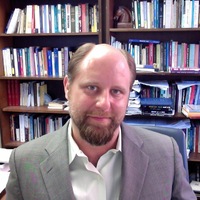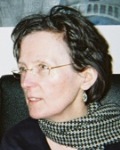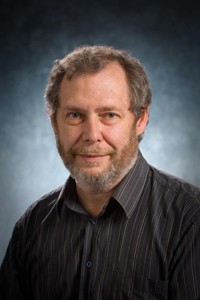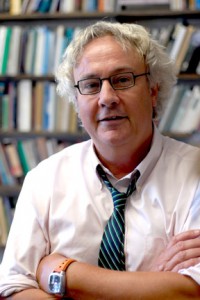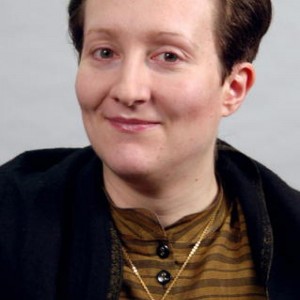 Ilaria L.E. Ramelli is Professor of Theology and K. Britt Chair (SHMS, Angelicum), Senior Visiting Professor at major universities, and Senior Fellow at Oxford University, Princeton University (Hellenic Studies), Durham University and Sacred Heart University Milan (Ancient Philosophy). We invited her to answer the question “What does philosophy of religion offer to the modern university?” as part of our “Philosophers of Religion on Philosophy of Religion” series.
Ilaria L.E. Ramelli is Professor of Theology and K. Britt Chair (SHMS, Angelicum), Senior Visiting Professor at major universities, and Senior Fellow at Oxford University, Princeton University (Hellenic Studies), Durham University and Sacred Heart University Milan (Ancient Philosophy). We invited her to answer the question “What does philosophy of religion offer to the modern university?” as part of our “Philosophers of Religion on Philosophy of Religion” series.
This is a very intriguing and helpful question for us scholars — and, I hope, for our students. Thank you for asking it and having us reflect on this!
From my personal experience and my way of conceiving and doing scholarship and all academic and scientific service, I think the main contribution of Philosophy of Religion [PoR] to the modern University is probably helping bridge the gap between Religious Studies / Theology and Philosophy departments. The philosophy-theology/religion divide is legitimate and has its theoretical and historical reasons, but can prove detrimental to scholarship, especially in the study of ancient and late antique thought. Also in light of the universalizing, and not compartmentalizing, etymology of “University” (Universitas), PoR as a discipline within modern University can work against the compartmentalization of philosophy, religious studies, and theology departments – and not only departments, but also competences, ways of thinking, and work. An excessive departmentalization takes away the capacity for complex thinking, complicating perspectives, and interdisciplinary and innovative research and scholarship.
Broadening, interrelating fields, and gaining larger pictures and better vantage points, must not be at the expense of rigorous deepening and competence in one’s own specialization. Ideally, broadening, intertwining, and deepening should go hand in hand to the extent that is humanly possible. This requires a tremendous amount of (individual and team) work and competence, but it also repays to a huge degree in terms of quality of research that can positively advance academic scholarship and thinking.
PoR shows that Religion can, and must, be studied philosophically, and that Philosophy can, and must, have Religion too as its object. PoR in Universities can also take a diachronic, historical approach, which, in my view, can, and still has to, yield extremely rich and momentous results.
More generally, PoR shows that the divine, like human philosophical reflection on the divine, belongs to modern University and occupies an important place in the scholarly and didactic work done in contemporary Universities. And didactic work at University, especially at the graduate level, makes sense only if firmly grounded in living, active scholarship of the highest quality. Professors should be great, accurate, and innovative scholars themselves.
Yet more broadly and importantly, PoR reveals that humans cannot help thinking about the divine and engaging into some relation with it — whatever their religious convictions, including atheistic ones. God is relevant to the modern University and what is going on there. That is, God is relevant to human thinking and human life (which is what University should reflect and enhance).
The perspective and method of PoR (as the branch of Philosophy that investigates Religion philosophically) are those of Philosophy, but they are applied to Religion — and religions. Philosophers of religion in Universities could thus belong to both departments, though primarily, from the disciplinary viewpoint, they should be home in Philosophy departments.
Scholars in ancient and late antique philosophy are in turn found either in Classics or in Philosophy departments, depending on the academic traditions of their Universities. But they study a period in the history of thought in which philosophy was closely related to theology and religion, and had to do with the exegesis of theological traditions. This often took the shape of allegoresis, from Stoicism to Middle/Neoplatonism, including patristic Platonism. Allegoresis was part and parcel of philosophy in the Stoic and Platonic traditions, and showed precisely the connection between religion and philosophy! It indicated how religious traditions expressed philosophical truths. See my “The Philosophical Stance of Allegory in Stoicism and its Reception in Platonism, ‘Pagan’ and Christian,” IJCT 18 (2011) 335-371; “Valuing Antiquity in Antiquity by Means of Allegoresis,” in Valuing the Past in the Greco-Roman World. Penn-Leiden Colloquium on Ancient Values VII, eds. James Ker and Christoph Pieper, Leiden: Brill, 2014, 485-507; “The Philosophical Role of Allegoresis as a Mediator between Physikē and Theologia,” JbRP 12 (2013) 9-26.
In antiquity and late antiquity, theology was part and parcel of philosophy. The study of the divinity was the crowning of philosophy. I highlighted this point myself in a number of studies. Carlos Fraenkel, Philosophical Religions from Plato to Spinoza (Cambridge University Press) also illustates well that for many “pagan,” Jewish, Christian, and Muslim philosophers before the Enlightenment, philosophy and religion were not really distinct.
Of course, I am not advocating a confusion of methodologies between contemporary philosophy and theology, or simply a return to pre-Kantian or pre-Cartesian philosophy, or even to ancient and medieval philosophy as a necessary paradigm for doing philosophy academically today. But perhaps I would like to see more interest in ancient and late antique philosophy by philosophers of religion and philosophers in general, and in turn more interest in PoR by scholars in ancient philosophy. Also, patristic philosophy, particularly patristic Platonism, in which theology/religion was prominent (just as it was in “pagan” Neoplatonism!), should better be considered part of ancient philosophy and studied as such.
Academic journals and series could be devoted to patristic philosophy. Hopefully the gap could be bridged between patristic scholars, who often are not very familiar with ancient philosophy, and scholars in ancient philosophy, who often do not even know patristic philosophers, or discard them as non-philosophers, merely because (one could suspect) they are not conversant with their thought.
An approach such as that offered by PoR helps a great deal study ancient and late antique philosophy and theology. As is well known, there exists no word for “religion” in Greek, Latin, or Hebrew, and the concept itself is elusive in ancient Jewish, Greek, and Roman thought and culture. (See Jörg Rüpke, Religion of the Romans, Cambridge: Polity, 2007, 5-12; Brent Nongbri, Before Religion: A History of a Modern Concept, New Haven: Yale University, 2013.) But significantly there is a word for “philosophy” in Greek, where it was invented, and Latin, and there is a word for “theology” too, coined again in Greek, as the part of philosophy that deals with the divine, and also interprets religious traditions (literary, cultic, icongraphic…) in philosophical terms.
PoR was indeed already practiced by ancient and late antique philosophers, “pagan”, Jewish, and Christian (and Islamic) alike, from Stoic allegorists to Middle and Neoplatonists, Philo and Origen of Alexandria, down to Eriugena and beyond. For Origen, biblical exegesis and the study of the divinity pertained quintessentially to philosophy (as I shall clarify in Origen of Alexandria as Philosopher and Theologian, Cambridge University Press). These intellectual giants, ancient and medieval philosophers of religion, may provide a fruitful source of inspiration for philosophers or religion in our modern Universities.




